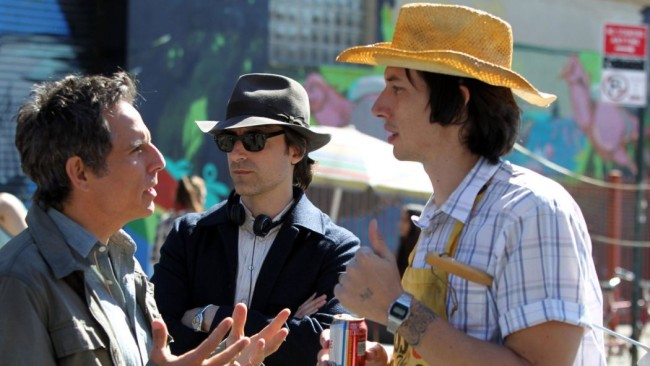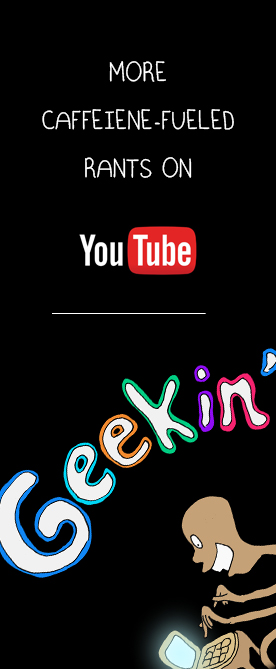Noah Baumbach and I haven’t always seen eye to eye. It was only withGreenberg and Frances Ha that I finally came to appreciate his voice—(although, it can be argued that Frances Ha is more Greta Gerwig than Baumbach). My dissatisfaction with his work first started when he sullied Wes Anderson’s filmography by co-writing The Life Aquatic. I thought the movie relentlessly pessimistic, false in its emotional and familial cues, and belabored with a brand of humor that relied too heavily on disingenuous non sequiturs; it was a strung-out tapestry riddled with moth-shredded holes, patched up and sewed up, haphazardly, like something you’d find at a lazy mid-week garage sale. And worst of all, he ruined the hot streak of one of my favorite—(at the time)—directors.
Swinging back and forth—equal parts jeer and cheer—I finally landed on the side of positivity. With the release of Greenberg and Frances Ha I was finally convinced of how wrong I was. And so, in a state of “Born Again” ecstasy, I found myself looking forward to Baumbach’s new movie, While We’re Young, starring Ben Stiller and Naomi Watts as a middle-aged couple—Josh and Cornelia—who befriend an artsy-fartsy, Brooklyn-fed, DIY couple in their mid-20s, played by Adam Driver (Jamie) and Amanda Seyfried (Darby).
At the Lincoln Film Society Q&A held after the movie, Baumbach said that more than anything else he wanted to make a movie about marriage. He wanted to examine the ups-and-downs, the turns that cause so much distrust, so much pain, so much mystery. Hmm…interesting…because that’s certainly not the movie I saw. The movie I saw was about “Josh-y”, a self-obsessed, egomanaical documentarian who’s too hung up on his own bullshit to share the creative process of making a film—a defense mechanism—as you find out by film’s end—that oddly validates itself by randomly, and almost nonsensically, villanizing Adam Driver’s opportunistic Jamie with some truly bizarre directorial decisions—one of which consists of Driver’s character suddenly sporting an over-the-top cloak at a high-class dinner gala. The film begins and ends with Josh’s development, his arc, his breakthrough. This is still—as most movies are—a movie about a man’s bout with the self: the id and the ego, and the Big Ol’ Unit that dictates so many of our moves. The only scenes that work between Watts’ Cornelia and Stiller’s Josh are the ones where they enjoy each other’s company, when they get to kid and flirt, when Watts spazzes out with a Hip Hop dance routine that thaws Josh’s caginess and allows him to feel comfortable enough to join her. On the other hand, the scenes where they argue and tell each other “Fuck you!” are short-shrifted. The emotional cues and turns make little human sense. I know! I know!: there’s only so much a 90-minute movie can do to refelect the unwielding nature of a full-blown fight between two spouses, but Baumbach barely even tries.
What was so interesting about Greenberg and—to a greater extent—Frances Ha was Baumbach’s ability to create narratives that wandered free of structure; instead of moving by plot, Baumbach kept the momentum up with character work and interpersonal dynamics. I can easily—and unfortinately!—say thatWhile We’re Young is Baumbach’s first foray into plot, which he heavily relies on. To the point where the film shifts—jarringly so—into “Paranoid Thriller” territory akin to All the President’s Men or The Inside Man. When asked why the apparent shift, Baumbach replied: “I don’t know, I just wanted to have fun with that, and I thought the movie could hold that. In Ben’s head, these are the stakes. These are the stakes.” Stakes: a popular buzz word while discussing plot and character motivation. Very “Screenwriting 101”. Earlier in the Q&A someone asked him, “Why does Darby make artisinal ice cream?” In response, Baumbach said it was a kind of “MacGuffin,” a “plot point, which for me is a big deal: to have a plot point”.
It certainly is.
It’s this beginner’s adherence to plot that completely derails an otherwise funny movie. I would never say it’s one of Baumbach’s best, but it certainly had a good chance of being his “funniest”—in a commercial way, too. While We’re Young has the makings of a better, more refined Apatow-like comedy. We’re accustomed to a Baumbach who relays humor through dialogue and character; but here, instead of relying on dry and witty repartee, we have a Baumbach who’s uncharateristicaly interested in sight gags, many of which take place during a hilariously ill-advised ayahuasca trip. There’s vomitting, back-pain malfunctions, wonderful wardrobe gags, a scene where a truly game Naomi Watts—who’s never been funnier—flails her way through a superhuman Hip Hop fitness class…and so on.
Listening to Baumbach address a crowded theater, I got the distinct impression that he has no clue what his movie is about. In comparison to Frances Ha, which is a movie stapled to a very specific time that (almost) everyone has experienced—those lost years in your mid-20s—While We’re Young is about issues that I don’t believe Baumbach’s ever dealt with first hand. He’s never had children, nor has he had a successful marrriage. If anything, the movie would ring more true if Josh left his wife, shacked up with Darby, and started a period of his life dictated by the capricious meanderings of a much younger crowd of people, behaving as they do, partying, and DIY-ing his life into one big social media collage. (Side Note: Baumbach’s been romantically tied toFrances Ha star Greta Gerwig ever since their work on Greenberg, which also happened to co-star his ex-wife Jennifer Jason Leigh). Instead, we get a movie that’s terribly unfocused, a movie that seems more like a scatterbrained exercise in cross-over appeal than one, cohesive film. It’s almost as if Baumbach’s found himself on the side of the road, abandoned by Wes—who’s finally gained his own cross-over appeal with American audiences—pants hiked up past his ankles, pimping out his integrity to the first studio head willing to give the boy a twirl.
If only he would take note of his buddy’s rising star. If he did, he would notice that Wes has never compromised his vision. His movies are as Wes-y as they’ve ever been, as idiosyncratic as they’ve ever been, and—perhaps!—it’s that strangely weird integrity, that tenacity of vision, that’s finally garnered Wes a wide enough audience to turn his movies into profit-making darlings.
What can I say? Stick to your guns, Mr. Baumbach.






